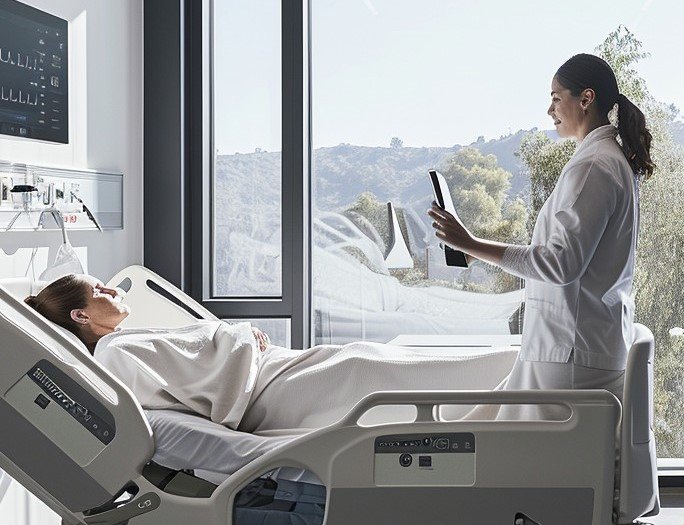The postpartum period should not fill you with dread or concern. With the right preparation, you can come out of it with ease. This comprehensive checklist outlines essential postpartum essentials, provides tips for mental and emotional well-being, and offers guidance on creating a supportive environment.
The Ultimate Postpartum Care Checklist: Your Guide to a Smooth Recovery
Giving birth is a monumental event, but what happens after the baby arrives is just as important. That postpartum period requires careful attention and support. You need a solid plan to ensure your recovery and well-being, and for many, a postpartum care checklist provides an answer to that. It is known to work for those who have had a vaginal delivery as much as it works for those who have had a cesarean procedure.

A postpartum care kit serves as a comprehensive solution for new mothers, bundling essential items tailored for both hospital and home use, and addressing both emotional and physical care needs during the postpartum period.
From physical healing to emotional well-being, here’s how to prepare yourself for full recovery after the delivery of your bundle of joy.
Setting Up for Success: YourPostpartum Care Essentials
First things first: postpartum recovery essentials. Right after giving birth, your body begins a healing process. Stock up on postpartum essentials to ensure you have everything you need. Postpartum pads are non-negotiable. They help manage postpartum bleeding, which could be heavy in the first few days and weeks postpartum. You’ll also need nursing pads if you plan to breastfeed. Leakage may happen anytime, and being prepared will save you from discomfort.

Then there’s the matter of postpartum pain. You might experience soreness, especially in the perineal area if you’ve had a vaginal birth. Here, witch hazel pads and a peri bottle become your best friends. The witch hazel soothes and promotes healing, while the peri bottle helps keep things clean and reduces irritation. Use them every time you use the bathroom. That’s a tip from the pros.
Dr. Kristal Lau, a postpartum wellness consultant, emphasizes the importance of a personalized approach. Having experienced postpartum struggles herself, Dr. Lau understands the value of integrating both conventional and modern practices. Her consulting company, Bridges In Health, offers comprehensive support grounded in both science and holistic care. A mix that ensures you have the best of both worlds. Book a Call.
Physical and Emotional Recovery: Finding the Right Balance
Recovery is not just physical. Your emotional and mental well-being matters too. Many new mothers face challenges like postpartum depression or baby blues. Support is key. Engaging a postpartum nurse, or a therapist provides invaluable help, offering both physical support and emotional encouragement during the postpartum journey.
A postpartum doula provides emotional and practical support, assisting with recovery and overall wellbeing after childbirth. That nurturing guidance makes all the difference in how you experience those first few weeks postpartum.

Remember, caring for a new baby is a full-time job. But your mental health is just as important. Dr. Lau’s concept of the “nurtured fourth trimester” encourages new mothers to focus on recovery, bonding, and overall wellness. To do that, create a supportive environment that includes adequate rest, nutrition, and emotional support.
Mama’s Wing Woman, a sub-brand of Bridges In Health, specializes in creating tailored postpartum plans that integrate both conventional and modern practices. It’s a holistic approach that addresses not just the physical, but the emotional and psychological aspects of recovery as well.
Must-Haves for a Smoother Postpartum Experience
Now, let’s talk about postpartum care kits. Consider them your survival kit for the period following birth.
- Maxi Pads: Needed to manage postpartum bleeding, especially in the early days.
- Disposable Underwear: Convenient and necessary for postpartum moms dealing with the heavy flow of postpartum bleeding. Specialized options like absorbent ‘period panties’ can be particularly useful.
- Ice Packs: Provide instant relief for swelling or discomfort in the perineal area.
- Stool Softeners: Necessary for easing post-birth bowel movements.
- Nipple Cream: Soothes sore nipples for breastfeeding mothers.
- Nursing Bras: Offers comfort and easy access for breastfeeding.
- Breast Pump: A good-quality pump makes the pumping process smoother for mothers who choose to pump.
- Water Bottle: A must for staying hydrated, especially while nursing. Easy access helps you sip throughout the day.
Comfort and Healing: A Delicate Balance
Healing is sometimes uncomfortable. After giving birth, your body needs time and support to recover. Products like sitz baths and witch hazel pads are perfect for soothing any perineal discomfort. And, if you’ve had a cesarean delivery, your needs will differ slightly. Prioritize items that ease pain and aid in wound care. For some, hemorrhoid cream and witch hazel may offer the necessary comfort.
Physical recovery is a necessity, but so is your comfort. Think of items like disposable pads and toilet paper that are gentle on your sensitive skin. A Peri bottle is great for maintaining hygiene without irritation. If you’re looking for instant relief from discomfort or soreness, those items are your go-to. They ensure you’re comfortable as you focus on bonding with your new baby.
The Emotional Journey: You’re Not Alone
The postpartum recovery journey could be overwhelming. But remember, you’re not alone. Many new moms face similar challenges. Managing postpartum depression? Having a bit of a challenge adjusting to the new mom life? It’s okay to seek help.

Reach out to a lactation consultant if breastfeeding becomes challenging. Join support groups to connect with other new mothers who understand what you’re going through. The emotional support should make a difference.
Dr. Lau’s “Postpartum 30” book offers a structured thirty-day plan that blends conventional and modern practices, guiding new mothers through the critical first month after birth. The resource can help you deal with the complexities of the postpartum period while providing a structured approach to recovery.
Preparing for Your Postpartum Journey
As you prepare for the arrival of your baby, don’t just focus on the hospital bag. Consider what comes next. Prepare a postpartum checklist that includes all the postpartum recovery essentials. From postpartum pads to nursing bras, having the items ready should make your transition smoother. Remember, it’s not just about surviving those first few weeks postpartum. It’s about thriving.
Frequently Asked Questions (FAQs) About Postpartum Care
How long does postpartum bleeding last?
Postpartum bleeding, known as lochia, typically lasts about four to six weeks. However, the duration varies. It’s usually heaviest in the first few days after birth and gradually decreases. Use postpartum pads rather than tampons to reduce the risk of infection.
What are the signs of postpartum depression?
Postpartum depression manifests in various ways, such as prolonged sadness, anxiety, irritability, or changes in sleeping and eating patterns. It’s more than just the “baby blues,” which are common and usually fade after a few weeks. If you experience intense feelings of hopelessness or have difficulty bonding with your baby, seek support from a healthcare professional.
How soon should I exercise after giving birth?
It’s generally recommended to wait until your six-week postpartum check-up before resuming exercise. However, light activities like walking might often be started sooner, depending on how you feel. If you had a cesarean delivery, your recovery might take longer. Always consult with your healthcare provider before starting any postpartum exercise routine.
Should I use regular sanitary pads for postpartum bleeding?
It’s best to use specially designed postpartum pads as they are more absorbent and cater to the heavier bleeding common after birth. Regular pads may not provide the necessary comfort and protection in the first few weeks postpartum. As your bleeding decreases, transition to lighter options.
